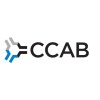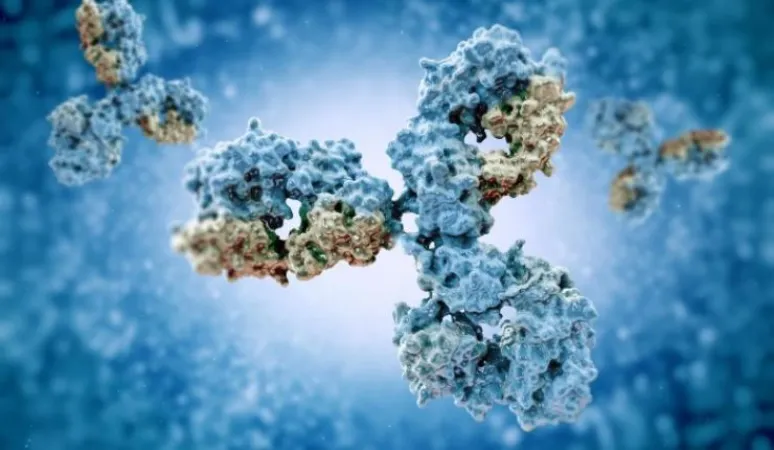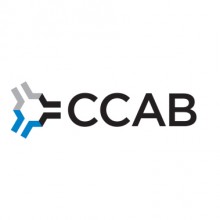Immunity against disease
This article was originally written and submitted as part of a Canada 150 Project, the Innovation Storybook, to crowdsource stories of Canadian innovation with partners across Canada. The content has since been migrated to Ingenium’s Channel, a digital hub featuring curated content related to science, technology and innovation.
Our body’s immune system is by and large a smooth-running operation. This complex system of organs, tissues and specialized cells destroys foreign invaders and rids the body of damaged and diseased cells. However, there are times when infections or diseases evade this protective process; one example is cancer.
In some cases, it’s possible to give the immune system a boost. Scientists have been exploring ways to do this, and over the past several years, they have successfully developed drugs that stimulate the immune system to treat diseases like cancer.
How are these therapies developed?
Many of these immune-boosting therapies are synthetic antibodies. While naturally-occurring, antibodies are the fighter molecules of the immune system, scientists can now engineer synthetic antibodies in the laboratory to match specific disease targets. Antibody therapeutics, which are part of a class of protein-based drugs called biologics, have emerged as the fastest growing segment of the pharmaceutical industry. In fact, Canada originated the biologics revolution with the discovery of insulin in 1921.
In Toronto, the Centre for the Commercialization of Antibodies and Biologics (CCAB) is focused on developing biologics and helping to translate them into validated therapies. Working closely with the Toronto Recombinant Antibody Centre (TRAC), the University of Toronto’s antibody discovery engine, CCAB bridges research and discovery at TRAC to commercial development, playing an important role in moving therapies from the laboratory to patients.
TRAC represents a unique model of scientific collaboration. It brings together scientists and clinicians who have a broad range of interests and expertise. Using state-of-the-art technology, this highly-skilled multidisciplinary team has produced thousands of high-quality antibodies against numerous disease targets, including cancers, diabetes, obesity and infectious diseases. These antibodies are designed such that they can be immediately evaluated for potential as new therapies.
The partnership between CCAB and TRAC represents an essential connection along Canada’s drug development pipeline. While our country’s scientists are recognized as being at the forefront of basic biological research, there has been a gap between the outstanding academic research undertaken in Canadian laboratories and its translation into concrete benefits for patients and the economy. CCAB helps to fill this gap by mediating and strengthening the connections between academia and industry.
Collaborating for better therapies
CCAB was established in 2014 by Dr. Sachdev Sidhu, a professor at the University of Toronto. He is now CCAB’s chief scientific officer. Dr. Sidhu also led the creation of TRAC in 2010 and has been recognized for his significant contributions to advancing protein science technology. Dr. Sidhu and his colleagues at the University of Toronto have developed new methods allowing the quick and efficient production of synthetic antibodies that are optimized for therapeutic use and have exquisite specificity for their intended target.
Currently, CCAB has an extensive portfolio of antibodies – 1,000 validated leads against more than 200 targets associated with cancer, inflammation, and autoimmune and infectious diseases. By building antibodies with drug development in mind, CCAB aims to move promising drugs to market more quickly by facilitating their transfer to industry.
Working with partners throughout North America, CCAB is looking to accelerate the development of treatments for some of the most challenging cancers – brain (glioblastoma), pancreatic and ovarian. Collaborating with international partners in China and India, CCAB is also working on developing therapies for infectious diseases such as dengue fever and MERS (Middle East Respiratory Syndrome).
Keeping pace with growing biotech innovation: our vision for the future
Neither science nor business stand still, Dr. Sidhu says, and CCAB is continually integrating new innovations in biologics stemming from academic research.
For example, engineered antibodies are constantly evolving with the introduction of new formats with improved potential for development into new therapies. These are first designed in research laboratories at the University of Toronto and then implemented into the TRAC pipeline.
Likewise, while antibodies are one class of proteins that has been used as a template for developing synthetic therapeutics, engineered versions of other proteins are currently being explored, including synthetic variants of ubiquitin and erythropoietin. CCAB plans to apply their established R&D and business model to bring some of these promising new drugs to market for the benefit of patients.
CCAB’s vision is to be instrumental in the creation of a new biotech eco-system in Canada by expanding partnerships with existing industry and promoting the creation of start-up companies to commercialize Canadian-developed innovative biologics.
“It’s an exciting time for CCAB,” Dr. Sidhu says, “and, more importantly, it’s an exciting time for the scientific opportunities to develop treatments for some of the most challenging diseases.”
Transcript
The Centre for the Commercialization of Antibodies and Biologics (CCAB) translates early stage biologics into high-value assets and products. Our Partners can access a robust portfolio of validated antibodies and biologics, powered by the University of Toronto's antibody research and discovery engine: the Toronto Recombinant Antibody Centre (TRAC). Work with us to access world-class expertise, a state-of-the-art phage display discovery platform, established antibody libraries and validated screening technologies.















